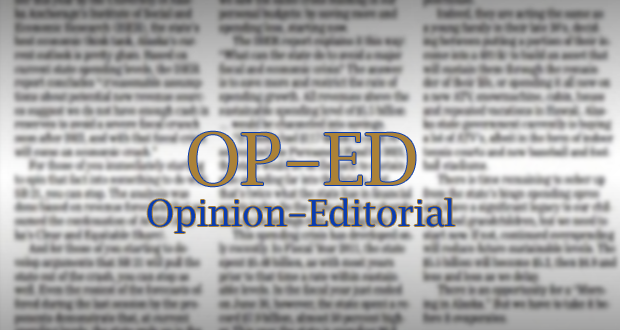By Stephen Cooper
A rotten egg incubated by reality television and hatched by retrograde thinking about women and the world, the presidency of Donald Trump is creating anxiety, fear, and a growing sense among progressives that an American psycho now occupies the White House. Many, like me, are turning to John Steinbeck for understanding. But that consolation has its limits.
As Francis Cline observed recently in The New York Times, one positive result of the groundswell of bad feeling about Trump is that “[q]uality reading has become an angst-driven upside.” Anxious Americans yearning to feel at home in their own country have a rekindled interest in exploring their identity through great literature: “Headlines from the Trump White House keep feeding a reader’s need for fresh escape.” “Alternate facts,” when “presented by a literary truthteller” like John Steinbeck, are “a welcome antidote to the alarming versions of reality generated by President Donald Trump.”
The literary tonic recommended by Cline may or may not have the power to clear the morning-after pall of Trump-facts and Trump-schisms (the two sometimes interchangeable) afflicting our panicked public dialogue, our beleaguered press, and, for those as apprehensive as I am, the American-psycho recesses of our collective mind. Perhaps counter-intuitively, his prescription for mental wellness includes works by a group of novelists with a far darker worldview than that of Steinbeck, who felt an obligation to his readers to remain optimistic about the future whenever possible. The writers mentioned by Cline include Sinclair Lewis (It Can’t Happen Here), George Orwell (1984), Aldous Huxley (Brave New World), William Faulkner (The Mansion), Jerzy Kosinski (Being There), Philip Roth (The Plot Against America), and Philip Dick (The Man In The High Castle). As an antidote to Donald Trump, they are bitter medicine. Is Steinbeck’s better?
As the Trump administration pushes plans to litter federally protected Indian land with pipelines (“black snakes”) that threaten to pollute the water used by millions of Americans, John Steinbeck’s writing about the dangers of environmental degradation seems more relevant, and more urgent, than ever. To mark the 100th anniversary of Steinbeck’s birth in 2002, the award-winning author and journalist Bil Gilbert wrote an insightful article on the subject for The Smithsonian entitled “Prince of Tides.” In it he notes that “Steinbeck’s powerful social realism is by no means his only claim to greatness. He has also significantly influenced the way we see and think about the environment, an accomplishment for which he seldom receives the recognition he deserves.”
Judging from “The Literature of Environmental Crisis,” a course at New York University, Gilbert’s point about Steinbeck’s stature as an environmental writer of major consequence is now more generally accepted than he thinks. Studying what “it mean[s] for literature to engage with political and ethical concerns about the degradation of the environment” the class will read “such literary and environmental classics as Rachel Carson’s Silent Spring and John Steinbeck’s The Grapes of Wrath” to “look at the way literature changes when it addresses unfolding environmental crisis.”
“Before ‘ecology’ became a buzzword,” Gilbert adds, “John Steinbeck preached that man is related to the whole thing,” noting that Steinbeck’s holistic sermonizing about nature’s sanctity reached its peak in Sea of Cortez, the literary record of Steinbeck’s 1940 expedition to Baja California with his friend and collaborator Ed Ricketts, the ingenious marine biologist he later profiled in Log from the Sea of Cortez. In it Steinbeck seems to foresee how America’s precious national resources—and collective soul—could one day become susceptible to the manipulations of an amoral leader like Donald Trump:
There is a strange duality in the human which makes for an ethical paradox. We have definitions of good qualities and of bad; not changing things, but generally considered good and bad throughout the ages and throughout the species. Of the good, we think always of wisdom, tolerance, kindness, generosity, humility; and the qualities of cruelty, greed, self-interest, graspingness, and rapacity are universally considered undesirable. And yet in our structure of society, the so-called and considered good qualities are invariable concomitants of failure, while the bad ones are the cornerstones of success. A man – a viewing-point man – while he will nevertheless envy or admire the person who through possessing the bad qualities has succeeded economically and socially, will hold in contempt that person whose good qualities have caused failure.
“Donald Trump has been in office for four days,” observes Michael Brune, the national director of the Sierra Club, “and he’s already proving to be the dangerous threat to our climate we feared he would be.” The executive actions taken by Trump in his first week as president (“I am, to a large extent, an environmentalist, I believe in it. But it’s out of control”) appear to fulfill Steinbeck’s prophecy about the triumph of self-interest over social good. That’s a hard pill to swallow for anyone who cares about the planet.
Whether Trump becomes the kind of full-throttle fascist described in It Can’t Happen Here remains to be seen. Sinclair Lewis’s fantasy of a future fascist in the White House appeared the same year as Tortilla Flat, Steinbeck’s sunny ode to multiculturalism and the common man. Unfortunately, I’m not as optimistic about the American spirit as John Steinbeck felt obliged to be when he wrote that book more than 80 years ago. I’m afraid that the man occupying the high castle in Washington today is an American psycho with the capacity to do permanent harm, not only to the environment, but to the American soul Steinbeck celebrated in his greatest fiction.
About the Author
Stephen Cooper is a former D.C. public defender who worked as an assistant federal public defender in Alabama between 2012 and 2015. He has contributed to numerous magazines and newspapers in the United States and overseas. He writes full-time and lives in Woodland Hills, California. Follow him on Twitter @SteveCooperEsq
This piece was written for Steinbeck Now. It is being published here with the author’s permission.




